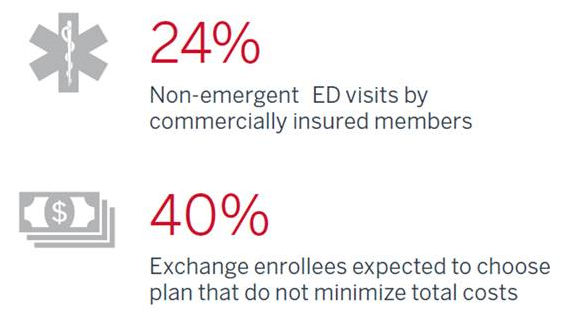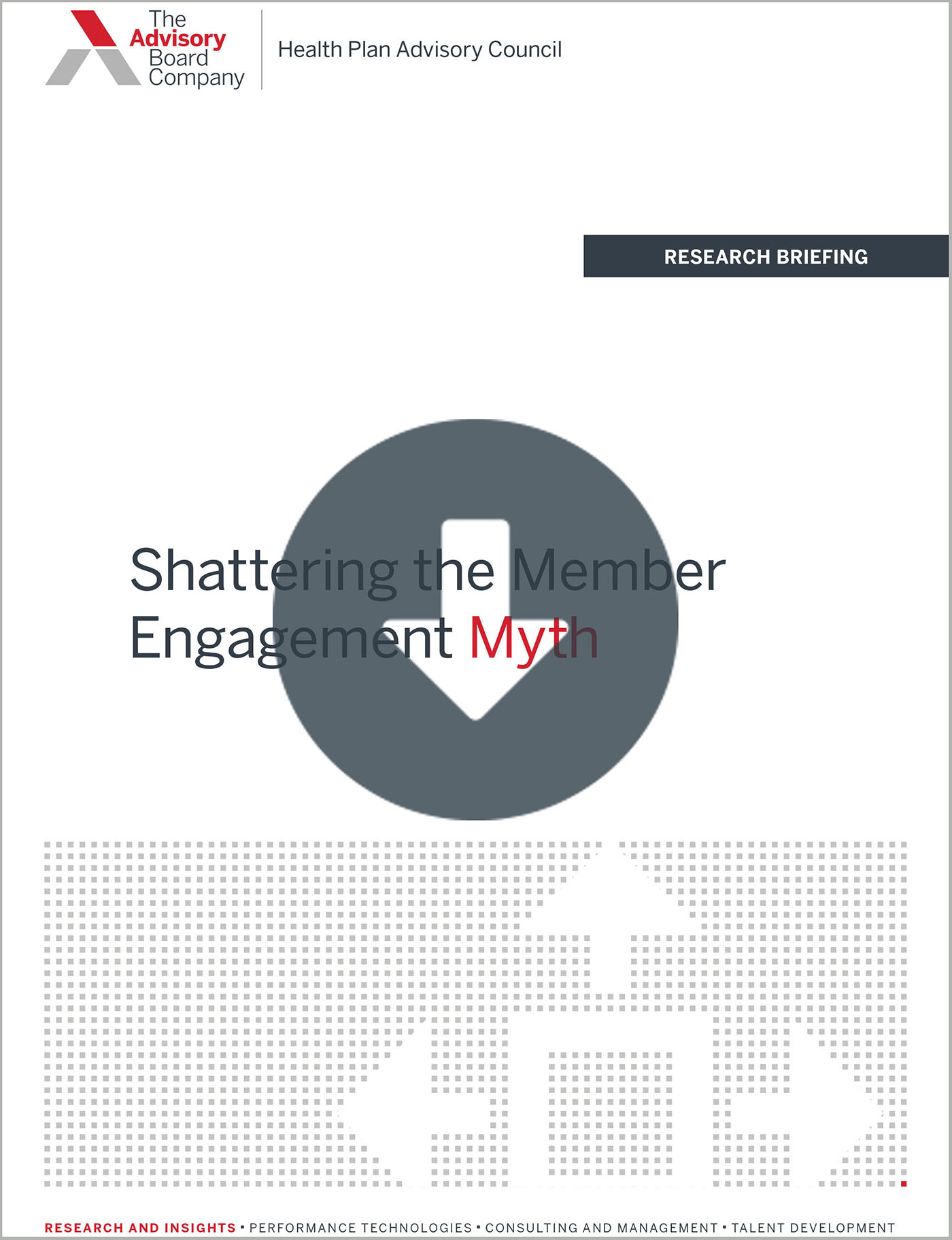Auto logout in seconds.
Continue LogoutAs the transition to value-based reimbursement continues, consumers are increasingly incentivized to manage their own health. As such, health plans seek to engage members in an effort to improve retention and gain new enrollments. The problem? Health plans aren’t seen as a trustworthy source of health information by consumers.
To make it easier to understand engagement, our research has outlined three central themes: immersion, passion, and activation. If health plans understand why members aren’t seeking this information from them, then they can tailor their strategies.
In the below article, we outline our concept of activation. To learn about the other concepts and dig into survey data that outlines why members don’t trust their health plans, download part one of our complimentary resource, Shattering the Member Engagement Myth.
Key Takeaway: Members don’t pursue care correctly because they are uninterested, they don’t see the urgency, or they see alternative options as more convenient. If members aren’t actively engaged in understanding how to best obtain health care, health plans won’t be able to influence how members care for themselves.
When analyzing the issues with typical member engagement strategies, our research highlights three main overarching problems that we have termed Immersion, Passion and Activation.
The concept of “activation” relates to how engaged members are to act in the best interest of the plan and themselves.
Research
Traditional member engagement efforts by health plans are doomed to fail for this one simple reasonIf members were “activated,” they would be following care guidelines, eating right and exercising, turning to the health plan for guidance, and recommending the health plan to their friends and colleagues. Health plans are not seeing any of these member actions.
We find that member effort in identifying the optimal source of care is minimal and tends to be based in limited research. For example, when it comes to researching specialists, our research indicates that word of mouth was the top resource for researching a specialist: 31% asked family or friends for advice, while a practice’s or hospital’s website ranked second, and health plans' websites ranked third.

There are a number of reasons that individuals don’t access care in the proper way, and it is not just a failure of the plan to find the right way to assist them.
Health plans can’t reasonably expect to influence how members access care if members are uninterested and not actively engaged.
“Activation” is a critical issue that our research indicates is key to better member engagement. To learn about the other themes, please download our resource Shattering the Member Engagement Myth: Part One and learn why members don’t trust their health plans.
To learn more about what health plans can do to address these issues, and about our framework for moving from "engagement" to "behavior", download the next resource in this series: Shattering the Member Engagement Myth: Part Two.
Don't miss out on the latest Advisory Board insights
Create your free account to access 1 resource, including the latest research and webinars.
Want access without creating an account?
You have 1 free members-only resource remaining this month.
1 free members-only resources remaining
1 free members-only resources remaining
You've reached your limit of free insights
Become a member to access all of Advisory Board's resources, events, and experts
Never miss out on the latest innovative health care content tailored to you.
Benefits include:
You've reached your limit of free insights
Become a member to access all of Advisory Board's resources, events, and experts
Never miss out on the latest innovative health care content tailored to you.
Benefits include:
This content is available through your Curated Research partnership with Advisory Board. Click on ‘view this resource’ to read the full piece
Email ask@advisory.com to learn more
Click on ‘Become a Member’ to learn about the benefits of a Full-Access partnership with Advisory Board
Never miss out on the latest innovative health care content tailored to you.
Benefits Include:
This is for members only. Learn more.
Click on ‘Become a Member’ to learn about the benefits of a Full-Access partnership with Advisory Board
Never miss out on the latest innovative health care content tailored to you.

